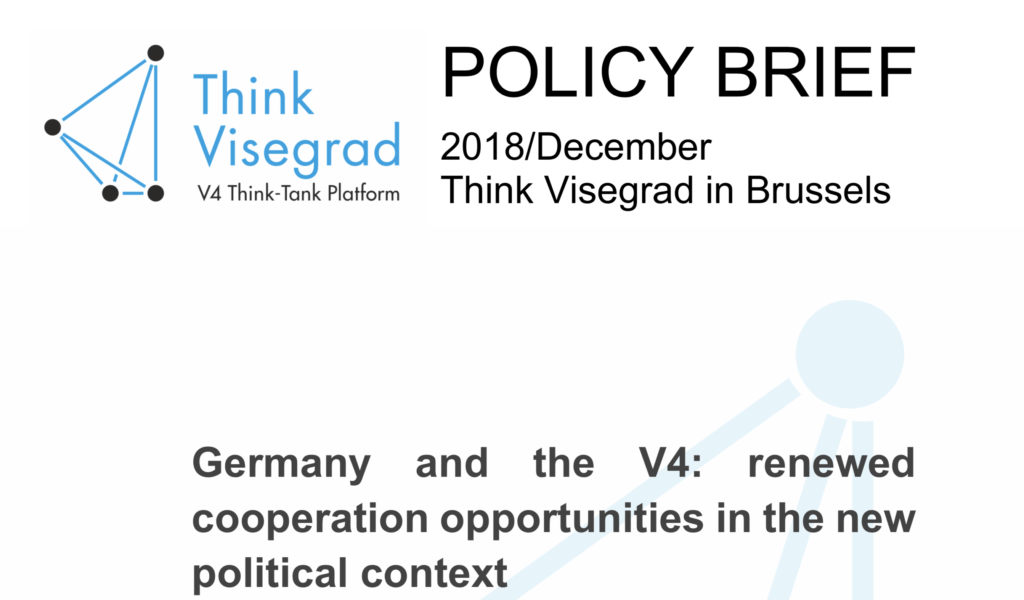Germany and the V4: renewed cooperation opportunities in the new political context
Kamil Frymark, as part of the project Think Visegrad, published a policy brief on the V4-German cooperation.
28. December 2018

- Germany’s collaboration with Central European countries, and especially the Visegrad Group (V4) is often perceived through the prism of political differences that have arisen from divergent visions of the future EU migration policy and debates on the rule of law. Simultaneously, new opportunities to deepen the already existing cooperation may appear due to the turmoil in Germany’s domestic politics as well as the international environment..
- The transformation of Germany’s political landscape increases polarisation in the Bundestag and makes it more difficult to create a predictable and stable foreign policy. The greatest challenge for Germany is Washington’s behaviour (e.g. raising tariffs or changing its attitude towards Iran), putting Germany in a quandary over whether to start strengthening relations with non-European actors, including China. However, Berlin is also aware of the significance of its economic ties with the US as well as its dependence on the US regarding defence issues. The V4 countries may also be facing a similar dilemma with a difficult choice between their most important trading partner, Germany, and the US.
- With Brexit, however, an opportunity to strengthen collaboration between Germany and Central Europe has emerged. The UK’s withdrawal from the EU could prompt the government in Berlin to seek new political alliances among the V4 countries in order to balance the influence of France in the EU on such areas as the negotiations of the EU multiannual financial framework, the vision of reforming the EU (e.g. strengthening the principle of subsidiarity, deepening the competitiveness of EU countries), and the EU enlargement to the Western Balkans. To strengthen political ties, joint initiatives and deepened dialogue will be required as well as increasing the awareness among German decision-makers of how important Central Europe is for Germany in all aspects, not only the economic one.
You can download the whole publicaiton by clicking on the PDF button on the right of this article.





